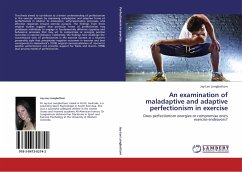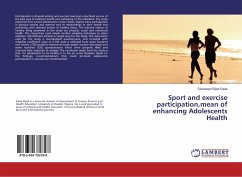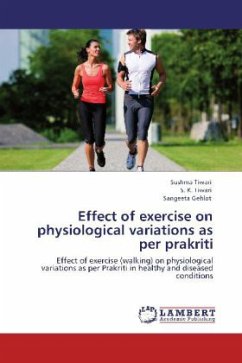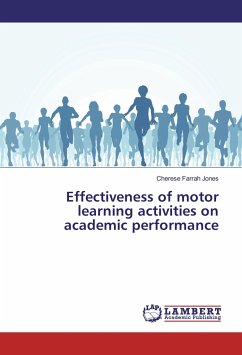
An examination of maladaptive and adaptive perfectionism in exercise
Does perfectionism energize or compromise one's exercise endeavors?
Versandkostenfrei!
Versandfertig in 6-10 Tagen
45,99 €
inkl. MwSt.

PAYBACK Punkte
23 °P sammeln!
This thesis aimed to contribute to a better understanding of perfectionism in the exercise domain by examining maladaptive and adaptive forms of perfectionism in relation to motivation, self-presentation processes, and affective responses toward exercise pursuits. The findings from three original studies suggest that particular forms of perfectionism may predispose individuals to engage in fundamentally different cognitive and behavioral processes that may act to compromise or energize positive outcomes in exercise behavior. Collectively, the findings here challenge the conventional view of pe...
This thesis aimed to contribute to a better understanding of perfectionism in the exercise domain by examining maladaptive and adaptive forms of perfectionism in relation to motivation, self-presentation processes, and affective responses toward exercise pursuits. The findings from three original studies suggest that particular forms of perfectionism may predispose individuals to engage in fundamentally different cognitive and behavioral processes that may act to compromise or energize positive outcomes in exercise behavior. Collectively, the findings here challenge the conventional view of perfectionism in the exercise context as a neurotic personality style that precipitates negative outcomes in exercise and best corresponds to Hamacheck's (1978) original conceptualization of normal or positive perfectionism and provides support for Slade and Owens (1998) dual process model of perfectionism.












